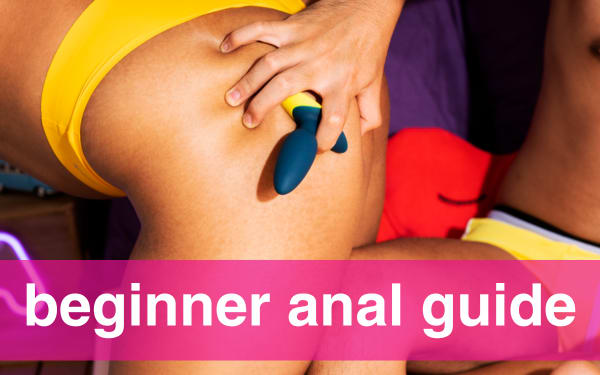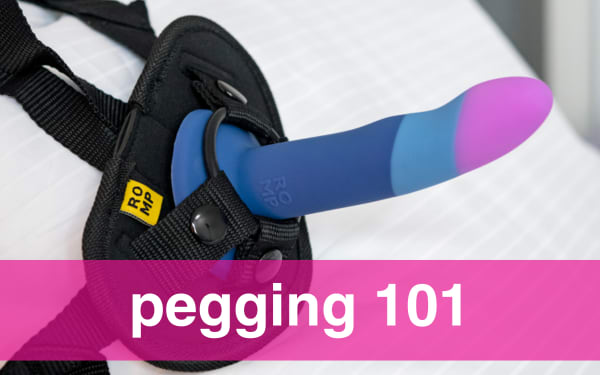 I am a sex educator. I've been doing this work for over 5 years now and through it all, I've talked with people about masturbation, anal sex, orgasm, using fingers, vibrators, strap-ons, G-spots and much more. STIs sometimes come into the equation but when people are shopping for sex toys, often those questions don't come up. When they do, the conversation tends to be very general: use condoms, gloves, dental dams; protect against fluids; minimize skin-to-skin contact to protect against HPV and Herpes.HIV is something that almost never comes up. I have a few guesses as to why. First, the populations that are most vulnerable to HIV are not the main group of people that come into Babeland. Second, the panic has subsided for the most part. I think most people never consider that they could be HIV positive or even at risk and the majority of people don't know their status. Third, although people disclose amazing amounts of personal information when talking to sex educators, unless HIV was a particular concern with a toy, there would probably not be a reason to disclose their status.What I mean to say by all of this is that it's been quite awhile since I've dealt with HIV concerns on a fairly regular basis. It popped back into my life recently in an incredibly real way.I recently got a part-time job doing HIV/STI counseling and testing with high risk youth. Even among high risk youth a positive diagnosis is a fairly rare thing. It was my first day of counseling on my own after observing others and I was nervous but using all of my sex educator skills to try and get as much information as possible and give the best advice I could.The second person I counseled was a young man who seemed like he was doing all of the right things - he used condoms all of the time, he had only had a few partners and seemed relatively knowledgeable about how to protect himself. I felt like we'd had a great talk and I gave him the rapid HIV test and sent him on his way. Twenty minutes later as I was packing up to go, my supervisor pointed out to me that the test had been strongly reactive. We couldn't say for sure, but this person most likely was HIV positive.I was stunned. What had I missed? What had I done wrong? Why was I so surprised? I knew that there was a possibility that eventually someone I would test would be positive. I just didn't expect it to be so soon. And maybe, I didn't really expect it at all. At that moment, everything really hit home for me - what this young person would be dealing with, how I would feel if I were to find out I was positive, just how scaring testing can be. This moment drove home for me the importance of never assuming that you can tell or that even a sexual history will give you a good idea of someone's status. Testing is the only way to know for sure. Do you know your status?
I am a sex educator. I've been doing this work for over 5 years now and through it all, I've talked with people about masturbation, anal sex, orgasm, using fingers, vibrators, strap-ons, G-spots and much more. STIs sometimes come into the equation but when people are shopping for sex toys, often those questions don't come up. When they do, the conversation tends to be very general: use condoms, gloves, dental dams; protect against fluids; minimize skin-to-skin contact to protect against HPV and Herpes.HIV is something that almost never comes up. I have a few guesses as to why. First, the populations that are most vulnerable to HIV are not the main group of people that come into Babeland. Second, the panic has subsided for the most part. I think most people never consider that they could be HIV positive or even at risk and the majority of people don't know their status. Third, although people disclose amazing amounts of personal information when talking to sex educators, unless HIV was a particular concern with a toy, there would probably not be a reason to disclose their status.What I mean to say by all of this is that it's been quite awhile since I've dealt with HIV concerns on a fairly regular basis. It popped back into my life recently in an incredibly real way.I recently got a part-time job doing HIV/STI counseling and testing with high risk youth. Even among high risk youth a positive diagnosis is a fairly rare thing. It was my first day of counseling on my own after observing others and I was nervous but using all of my sex educator skills to try and get as much information as possible and give the best advice I could.The second person I counseled was a young man who seemed like he was doing all of the right things - he used condoms all of the time, he had only had a few partners and seemed relatively knowledgeable about how to protect himself. I felt like we'd had a great talk and I gave him the rapid HIV test and sent him on his way. Twenty minutes later as I was packing up to go, my supervisor pointed out to me that the test had been strongly reactive. We couldn't say for sure, but this person most likely was HIV positive.I was stunned. What had I missed? What had I done wrong? Why was I so surprised? I knew that there was a possibility that eventually someone I would test would be positive. I just didn't expect it to be so soon. And maybe, I didn't really expect it at all. At that moment, everything really hit home for me - what this young person would be dealing with, how I would feel if I were to find out I was positive, just how scaring testing can be. This moment drove home for me the importance of never assuming that you can tell or that even a sexual history will give you a good idea of someone's status. Testing is the only way to know for sure. Do you know your status?








